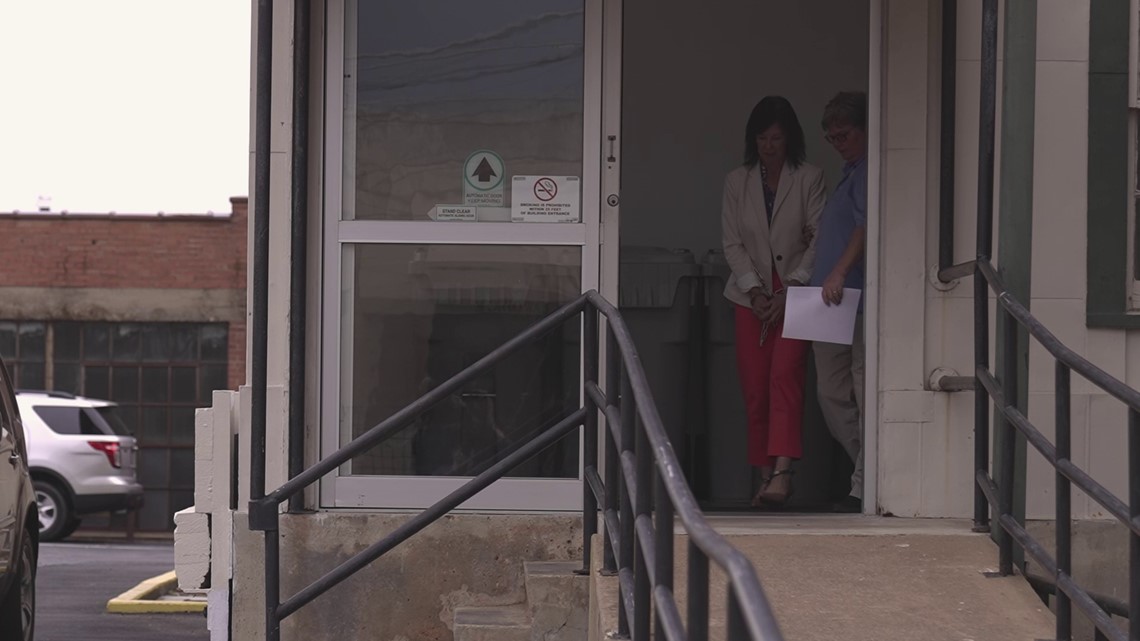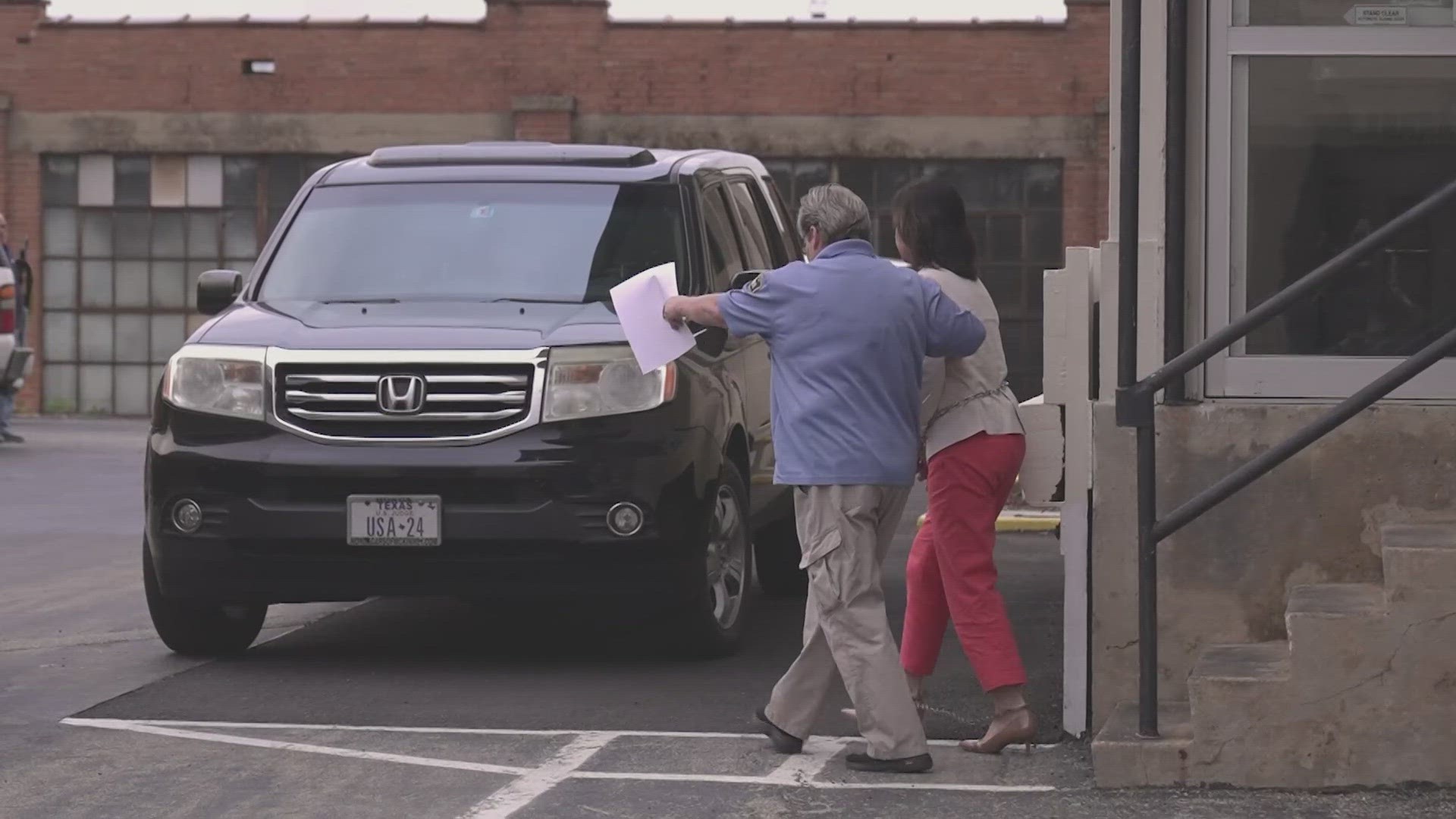SHERMAN, Texas — A federal jury convicted an Oklahoma City aircraft trust company owner accused of putting U.S.-registered planes into the hands of drug traffickers on two drug conspiracy felonies on Wednesday.
Besides the drug conspiracy counts, Debra Lynn Mercer-Erwin, 60, was also convicted of money laundering and wire fraud in connection with a Ponzi scheme in which investors claim to have lost at least $240 million.
Prosecutors described Mercer-Erwin’s drug trafficking convictions as a landmark case, marking the first time an aircraft trust company owner has been tried and convicted of such charges.
During the trial, prosecutors told jurors Mercer-Erwin deliberately turned a blind eye to the criminal activity involving the planes she registered at her Oklahoma City-based company, Aircraft Guaranty Corp.
Experts say the drug trafficking convictions sends a message to aircraft trust company operators that they must adequately vet foreign owners seeking to register their planes in the United States.


“I think the message is that we are looking at these types of arrangements more closely, that there needs to be some changes,” lead federal prosecutor Ernest Gonzalez said. “There needs to be some accountability; that this does have an impact.”
Gonzalez and his prosecution team of Heather Rattan and Lesley Brooks, said during the trial that a conviction would clearly show that aircraft trust companies they can’t “shift the burden” elsewhere.
“I think it is vital for them to know exactly where these planes are, who’s operating them, what’s being done,” Gonzalez said after the verdict.
Gonzalez said the case stemmed from a 2019 WFAA investigation into Mercer-Erwin’s company, Aircraft Guaranty. WFAA found more than a thousand planes that had a registered address to two P.O. Boxes in the tiny town of Onalaska, Texas -- which lacks an airport.
Mercer-Erwin later moved the planes registered to Aircraft Guaranty to Oklahoma City.
During the trial, witnesses testified that within weeks of Mercer-Erwin’s indictment, the number of drug flights by planes registered with N-tail numbers gained through U.S trusts had dropped significantly in Central America.
The jury did not find Mercer-Erwin guilty on a third drug conspiracy count. The jury also found her not guilty on export and registration violations.
The jury returned their verdict after two-and-half days of deliberations, and 13 days of testimony.
After the jury read the verdict, prosecutors asked that Mercer-Erwin be taken into custody. Her attorney, Joe E. White Jr., requested for her to be allowed to remain out on bond.
U.S. District Judge Amos Mazzant, however, ordered that Mercer-Erwin be immediately taken into custody by U.S. Marshals.
“They (the jury) convicted her of the most serious charges,” Judge Mazzant told White.
Judge Mazzant also told White the jury clearly chose not to convict on the export and registration violations, which were more “murky.”
“You’re remanded into the custody of the marshals,” Judge Mazzant told Mercer-Erwin.
U.S. Marshals approached Mercer-Erwin. They allowed her to hug her husband and her daughter, Kayleigh Moffett, who had pleaded guilty to charges prior to the start of her mother’s trial.
“I love you. I love you,” Mercer-Erwin told Moffett. “We’re going to appeal.”
Moffett pleaded guilty to wire fraud and not properly reporting that planes had been taken out of the country. She accepted a deal for five years of probation.
Under U.S. law, foreign nationals cannot get U.S. registration for their aircraft. However, the FAA allows foreign nationals to gain U.S. registration for their aircraft by transferring the title to a trust company. By gaining U.S. registration, the planes of foreign owners obtain an N number that allows them greater access and, arguably, less scrutiny within the U.S.
Mercer-Erwin admitted in a proffer statement in December 2020 that 10 of her planes had drug connections.
Two planes registered by Mercer-Erwin’s company were found in Central America in 2019 carrying a total of more than three tons of cocaine.
Mercer-Erwin was also convicted in connection with a Ponzi scheme with her alleged accomplice, Federico Machado, through her other Oklahoma City-based company, Wright Brothers Aircraft Title. Machado is a fugitive in Argentina.
Mercer-Erwin told federal agents during her proffer she hoped to get a “big payout” from the Ponzi scheme that she said ran from 2014 to 2020. The Ponzi scheme was fueled by the sale of up to 100 fake airplane transactions involving at least $750 million.
A forensic accountant testified that Mercer-Erwin funneled $75 million from an escrow account of her company, Wright Brothers, to Machado, and pocketed $4.9 million in escrow fees. She also received $142,000 in interest from the escrow account.
Mercer-Erwin made two un-taped proffer statements to federal agents in the presence of several of her own attorneys. A third interview with Mercer-Erwin, when she was first arrested, was taped.
Prosecutors said a key piece of evidence in the alleged Ponzi scheme is a “secret ledger” that went back and forth via emails between her and Machado.
In her testimony, Mercer-Erwin sought to distance herself from Machado and the ledger. “It was (Machado’s) account of his transactions,” she testified. “I didn’t have a clear understanding of the ledger he was providing me.”
However, court testimony has shown that “ledger” and corresponding banking records showed that investors wired deposits into a Wright Brothers escrow account. Investors signed “escrow agreements” with Mercer-Erwin’s company that mandated the escrow remain in the account, only to be returned to the investor once the plane sales were completed, or upon the investor’s request for reimbursement.
However, the deposits failed to remain in the escrow account as required, government witnesses have testified. According to Mercer-Erwin’s testimony, money flowed from the escrow account to repay prior investors and into the coffers of entities controlled by Machado
“She wants you to believe through verbal agreements, rather than the written agreements, that it was okay to move money,” Gonzalez told jurors in closing arguments.
“She followed actions and directions of Machado, her partner in crime,” Gonzalez said. “It just shows she is part of the scheme with Machado.”
“She made interest money by having that dirty money in there,” Gonzalez added.
Prosecutors said investors were duped into what was supposed to be short-term loans with low risk and high rewards. Though no investors appeared at the trial, WFAA has confirmed that investors claim to have lost some $240 million, according to court records and their civil attorneys.
During closing arguments, prosecutors acknowledged that they have the burden of proof in the seven felony charges against Mercer-Erwin that included wire fraud, money laundering, drug trafficking and export violations. However, they said records bolster their case.
“They (the defense) think you’re too dumb to follow the evidence,” prosecutor Lesley Brooks told the jury.
Investigators and prosecutors have said a series of stories WFAA first aired in 2019 helped spur a federal investigation that resulted in the indictments of Mercer-Erwin, her daughter, Kayleigh Moffett, Machado and others.

